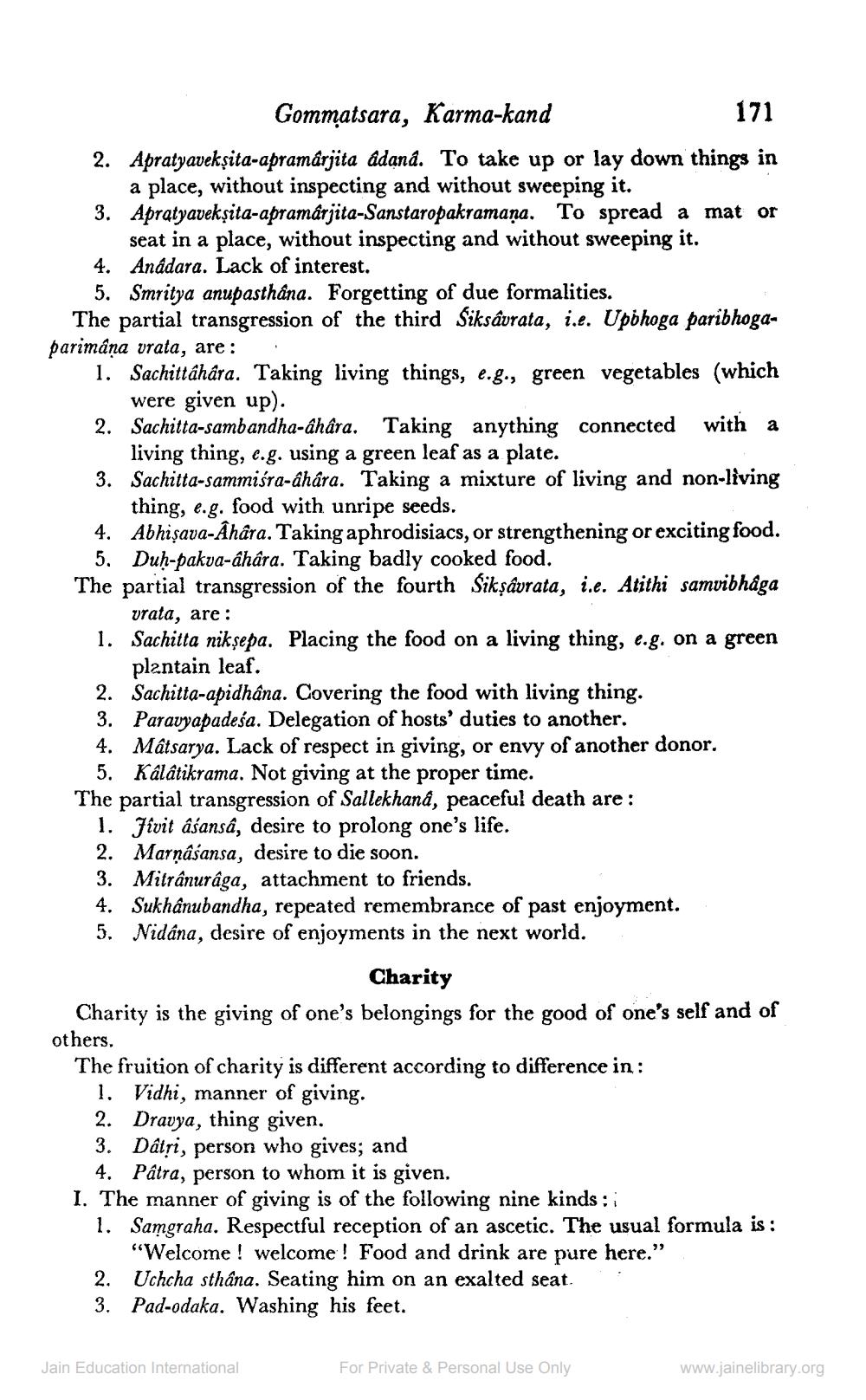________________
Gommatsara, Karma-kand
171
2. Apratyaveksita-apramârjita âdand. To take up or lay down things in a place, without inspecting and without sweeping it.
3. Apratyaveksita-apramârjita-Sanstaropakramana. To spread a mat or seat in a place, without inspecting and without sweeping it. Anádara. Lack of interest.
4.
5. Smritya anupasthana. Forgetting of due formalities.
The partial transgression of the third Siksavrata, i.e. Upbhoga paribhogaparimana vrata, are:
1. Sachittâhâra. Taking living things, e.g., green vegetables (which were given up).
2. Sachitta-sambandha-âhâra.
with a
Taking anything connected living thing, e.g. using a green leaf as a plate. 3. Sachitta-sammiśra-âhâra. Taking a mixture of living and non-living thing, e.g. food with unripe seeds.
4. Abhiṣava-Âhâra. Taking aphrodisiacs, or strengthening or exciting food. 5. Duḥ-pakva-áhára. Taking badly cooked food.
The partial transgression of the fourth Sikṣavrata, i.e. Atithi samvibhaga
vrata, are:
1. Sachitta nikṣepa. Placing the food on a living thing, e.g. on a green plantain leaf.
2. Sachitta-apidhâna. Covering the food with living thing.
3. Paravyapadeśa. Delegation of hosts' duties to another.
4. Mâtsarya. Lack of respect in giving, or envy of another donor.
5. Kâlâtikrama. Not giving at the
proper time.
The partial transgression of Sallekhanâ, peaceful death are: 1. Jivit ásansa, desire to prolong one's life.
2. Marnasansa, desire to die soon.
3. Mitrânurága, attachment to friends.
4. Sukhânubandha, repeated remembrance of past enjoyment. 5. Nidána, desire of enjoyments in the next world.
Charity
Charity is the giving of one's belongings for the good of one's self and of others.
The fruition of charity is different according to difference in :
1. Vidhi, manner of giving.
2. Dravya, thing given.
3. Dâtri, person who gives; and
4. Pátra, person to whom it is given.
I. The manner of giving is of the following nine kinds :
1. Samgraha. Respectful reception of an ascetic. The usual formula is: "Welcome! welcome! Food and drink are pure here."
2. Uchcha sthâna. Seating him on an exalted seat.
3. Pad-odaka. Washing his feet.
Jain Education International
For Private & Personal Use Only
www.jainelibrary.org




